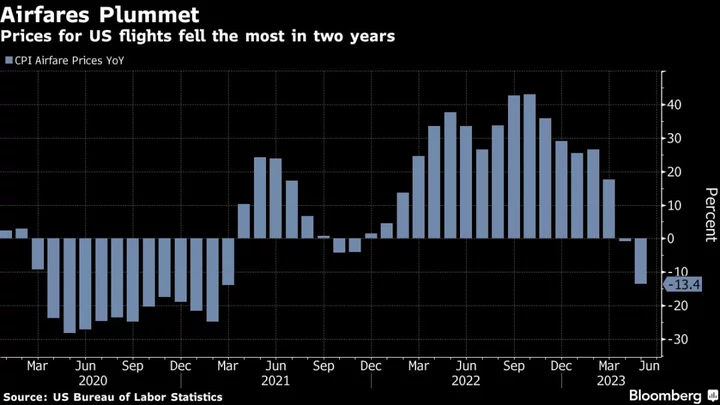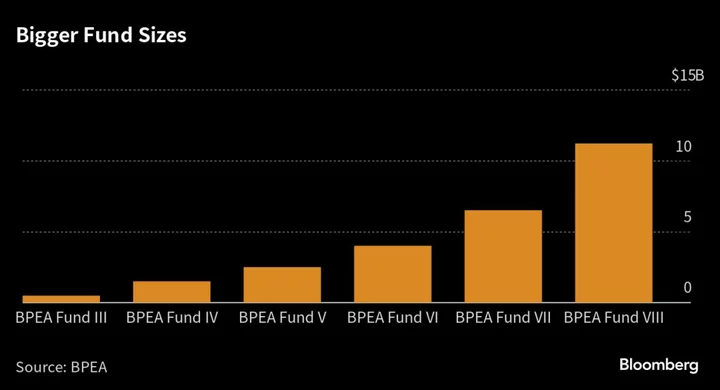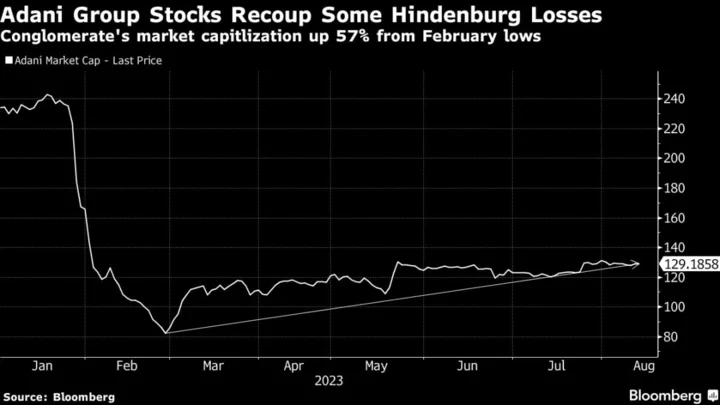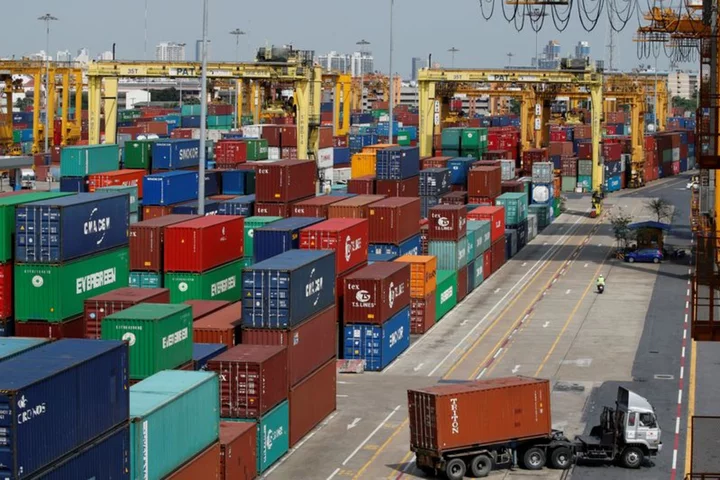By Holger Hansen and Christian Kraemer
BERLIN (Reuters) -German Finance Minister Christian Lindner signalled the government would need to make savings worth double digit billion euros to help solve a budget crisis, though data on Friday showed growth shrinking in Europe's largest economy.
Lindner plans to lift self-imposed limits on borrowing and present a supplementary budget next week after a constitutional court ruling wiped billions from the federal budget and forced the government to freeze most new spending commitments.
Germany has by far the lowest debt in the G7, but memories of how frugality paved the way for postwar reconstruction and how costly it was to re-integrate indebted ex-communist East Germany have shaped a uniquely debt-averse political culture.
The court ruling, which blocked the government from transferring pandemic funds towards green projects and industry subsidies, has sparked warnings that German companies could be starved of support to keep them globally competitive.
In order to keep backing industry, the fiscally hawkish Lindner ruled out tax rises and said savings would have to be found elsewhere, backed up by reforming the welfare state.
"The level of effectiveness of government spending has not yet reached the point where there are structural revenue problems," Lindner wrote on social media platform X on Friday with a link to his interview with daily Handelsblatt.
"On the contrary: in my view, structural changes in spending are inevitable," he added. "We have a considerable need for additional consolidation."
In the interview, he told Handelsblatt that consolidation needs were in the double-digit billions, "for example to implement the ambitious plans to renew the infrastructure and invest in technology."
"In a phase of low economic dynamism, the aim must be to relieve the burden on citizens and companies," he added.
Chancellor Olaf Scholz's government is set to propose lifting the debt brake, which limits Germany's structural budget deficit to the equivalent of 0.35% of gross domestic product, by proposing to parliament an "emergency situation" for 2023.
The brake, introduced after the global financial crisis of 2008/09, was first suspended in 2020 to help the government support companies and health systems during the COVID-19 economic fallout.
Lindner had been reluctant to suspend the mechanism as his party strongly advocates fiscal discipline but relented as the budget turmoil put more strain on Scholz's fractious three-way coalition.
HANDS TIED IN A BOXING MATCH
The crisis has sparked calls for reforming the debt brake. Economy Minister Robert Habeck from the pro-spending Greens has criticised it as inflexible and as blocking vital support for industry to keep jobs and value creation from moving abroad.
To a standing ovation at a Greens party conference, Habeck questioned whether the debt brake was applicable in changed times from "when climate protection was not taken seriously, wars were a thing of the past, China was our cheap workbench?"
"With the debt brake as it is, we have voluntarily tied our hands behind our backs and are going into a boxing match," he said.
However, government spokesperson Steffen Hebestreit said on Friday that reform, which would need a parliamentary supermajority, was not on the immediate agenda.
"A long-term reform of the debt brake has to be discussed in the long term," he said. "The coalition is currently working intensively on putting the 2024 budget together under the conditions set by the constitutional court."
A poll by the broadcaster ZDF suggested only a minority of Germans supported suspending the debt brake.
Some 57% wanted the budget shortfall from the court ruling to be covered by spending cuts, 11% favoured tax increases and 23% wanted the state to take on additional debt.
Germany has been among the weakest economies in Europe this year as high energy costs, weak global orders and higher interest rates have taken their toll. Its economy shrank in the third quarter.
German business morale however improved for a third straight month in November, the Ifo institute said, adding there had been no impact yet from the court ruling.
(Reporting by Holger Hansen, Christian Kraemer, Miranda Murray and Rene Wagner; writing by Matthias Williams; Editing by Toby Chopra)









